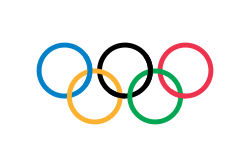The verb is the part of speech or lexical category that expresses existence, action, achievement, status or condition of the subject, express semantically complete preaching. In the sentence, the verb serves as the core of the predicate. In verbal termination can identify the time at which the action is performed, the mode is performed, the person performing and number.
Verbs by valence or grammar can be classified into intransitive, transitive, ditransitive, etc.. Transitive verb are required when more than one mandatory argument. The intransitive has one mandatory argument.
Accidence
In the vast majority of the world's languages is verb word class complex in the sense that it can reflect many more parts of speech than other words. Too often express one or more persons grammatical (though not in all languages, in Spanish only marks the grammatical person associated with the subject, in other languages can also dial the object), grammatical number (though not in all languages) time-aspect-mode and more rarely in some languages can lead grammatical gender, evidential, directional, shape sorters, intentional, etc.. In traditional grammar categories expressed in the verb are called "accidence".
In most inflected languages are three typical grammatical verb categories.
The category of tense verb takes different forms in different languages, Spanish and many European languages there are three possible values of time: past, present and future. Although in other languages is the difference between past and non-past (present or future). There are even languages like Chinese have no tense, and the semantic notion of time is by explicit adverbs (today, yesterday, ...) or contextually.
The mode category may vary in three different forms: indicative, subjunctive, imperative, to which is added the infinitive (sometimes also called infinitive, although it is not proper). The indicative mood states a fact, positive or negative. The subjunctive mood expresses doubt, desire or condition. The imperative mood expresses command or plea, that is, an order or request emphatic that must meet a second person.
The grammatical aspect concerns the semantic notion of action finished (perfect), unfinished action (imperfect), continuous action, etc.
In time many Indo-European languages, the grammatical aspect and how often expressed by a single morpheme fusionadamente simultaneously expressing the different values of these categories. For example in Spanish, as the morpheme-ste loved simultánemanete expresses the indicative mood, past tense and perfect aspect (besides expressing second person singular).
[Edit] Arguments verbal
The arguments required by the verb, different from the subject, called verbal complements. In various languages are called differently but in general a transitive verb requires a direct object (occasionally complement system), some also require the indirect ditransitive. The so-called "add-on" circumstantial is not mandatory in any case as a deputy syntactically verb phrase.
Semantically the direct object usually assume a thematic role of patient or theme, while the indirect object usually receives a thematic role of beneficiary or recipient. In románcias Spanish and other languages, some verbs require complements mandatory with different thematic roles that complement expressed by a supplement regime.
Circumstantial supplements are not as verbal arguments can be omitted, but when present complete the meaning of preaching expressing manner, place, time, etc.. These attachments are often introduced by adpositions or are made by adverbs of manner, time and place.
[Edit] diathesis
Main article: diathesis (grammar).
The grammatical diathesis has to do with the number of arguments required by the verb or verb valency. Many verbs require only one argument (intransitive) whose thematic role is often an experimenter. Other verbs that require an agent between its arguments are transitive and often also require a patient or subject. In Spanish some of the verbs that require an agent as one of its arguments can appear in transitive or intranstivas diathesis:
I ate the chicken (DT)
were eating (DI)
Other verbs are transitive and intransitive rigidly not support this duplicity diathesis:
John ate the chicken (DT)
* John devoured
The second sentence is not semantically correct and is not directly interpretable without additional pragmatic inferences.
The world's languages have morphological procedures may alter the valence of the verb including:
Passivation involves the formation of an intransitive from a transitive. Note that for example in Spanish the "complenento" agent introduced by the preposition by in a passive sentence is be skipped, and therefore is a syntactic attachment: Elected president is correct as president was elected by the majority of the camera. In languages nominative-accusative intransitivzación this process is called passive formation while ergative-absolutive languages this antipassive voice training.
The causative voice
The voice applicative
[Edit] Syntax
Requirements In addition to syntax, the appearance of a verb in a sentence may be linked by grammatical agreement. This means that in many languages the verb is required to have one way or another depending on other syntactic constituents that precede or follow it. In Spanish the verb agrees with the subject:
The boy ran much
The children ran much
However in other languages like Basque are consistent with the "subject" and "object":
ditut 'I have them' / dut 'I have it'
ditugu 'the we' / dugu 'what we have'
[Edit] The verb in the languages of the world

Verbos transitivos e intransitivos
Desde el punto de vista sintáctico, un verbo con diátesis transtitiva o verbo transitivo requiere dos participantes (un participante de tipo A(gentivo) y un participante de tipo O(bjeto)). Por el contrario, los verbos intransitivos requieren un único participante. En las lenguas nominativo-acusativas el segundo participante requerido sintácticamente es uncomplemento directo (CD), mientras que en las lenguas ergativas sería un complemento ergativo. Una misma raíz verbal puede ser en algunas oraciones intransitiva y en otras oraciones transitiva. Los siguiente son ejemplos en español:
- Estoy comiendo (intransitivo)
- Estoy comiendo nueces (transitivo)
Los verbos transitivos son aquellos que exigen la presencia de un objeto directo (también llamado "complemento directo") para tener un significado completo; esto es, que se refieren a acciones que transitan desde el actor al objeto (véase transitividad). Un ejemplo de esta categoría en español es:
- He conseguido dos entradas para la ópera.
Aquí, el grupo compuesto por "dos entradas para la ópera" representa el objeto directo. La construcción "He conseguido..." no tiene sentido por sí misma, y requiere que se aporte información sobre lo que se consigue. Por regla general, los verbos transitivos son de la forma "alguien hace algo a algo".
Los verbos intransitivos no admiten o no van acompañados de CD, no requieren de la presencia de un objeto directo que determine al verbo. Un ejemplo en español es el verbodelinquir, por ejemplo en la oración:
- andres delinque.
Se trata de un verbo intransitivo, ya que no requiere especificar un objeto directo, por lo tanto, el concepto de "delinquir algo" no tiene sentido en español.
En el uso lingüístico los verbos no son en sí mismos transitivos o intransitivos, sino que se denominan así según su uso. Es posible tanto usar verbos intransitivos como transitivos, por ejemplo en:
- Marisol canta una ópera.
como expresar verbos transitivos sin la presencia de un objeto directo, por ejemplo en:
- Déjaselo al técnico, que él seguro [que] entiende.
Son pocos los verbos intransitivos en el castellano al compararlo con idiomas con fuerte división entre verbos transitivos e intransitivos. En general, el castellano dispone de la forma autorreflexiva se para denotar intransitividad, como por ejemplo "se rompió", "se caerá", etc.






 Ancient Olympics
Ancient Olympics


